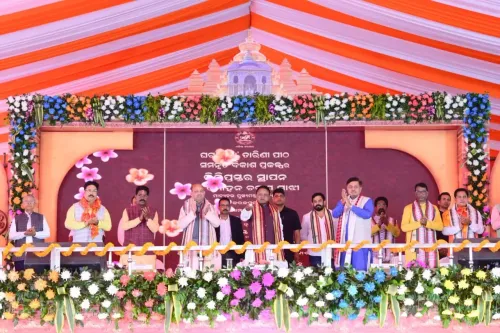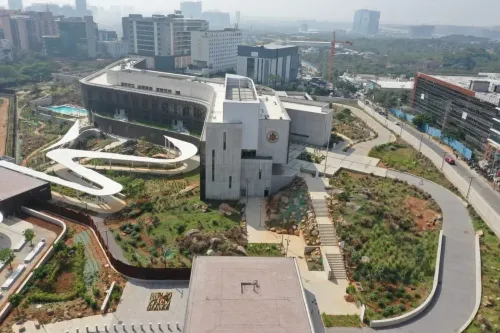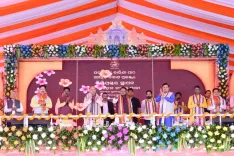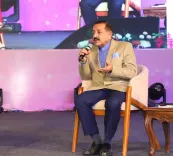Amit Shah and Digvijaya Singh Clash Over Sudhanshu Trivedi's Comments
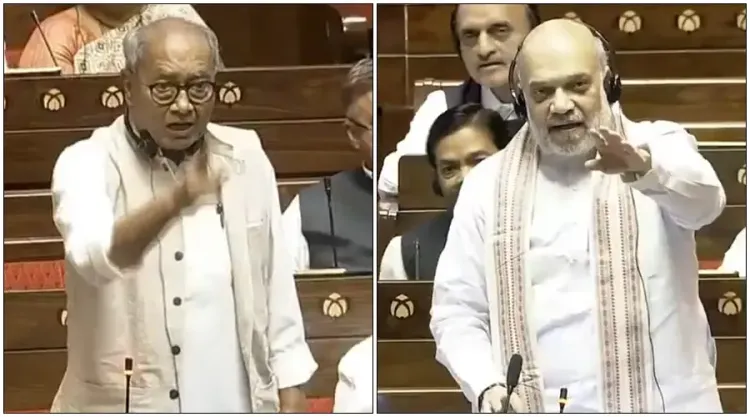
Synopsis
Key Takeaways
- Amit Shah and Digvijaya Singh clashed in the Rajya Sabha.
- BJP MP Sudhanshu Trivedi made controversial comments about Muslims.
- Singh accused Shah of responsibility for the Gujarat riots.
- Shah defended Trivedi's comments as factual.
- Opposition members strongly objected to the remarks.
New Delhi, April 4 (NationPress) Union Home Minister Amit Shah and Congress MP Digvijaya Singh were involved in a fiery debate during the discussion on the Waqf (Amendment) Bill in the Rajya Sabha on Thursday.
The heated exchange was triggered by BJP MP Sudhanshu Trivedi's contentious remarks regarding the Muslim community. Trivedi asserted that "good Muslims" are aligned with the BJP, while "bad Muslims" are linked to the Congress, prompting Singh to vehemently object and hold Amit Shah accountable for the Gujarat riots.
Amit Shah categorically denied these allegations, emphasizing that he was not the Home Minister during the riots, having assumed office a year and a half post the incidents.
During the Waqf (Amendment) Bill debate, BJP's Trivedi expressed concern over the changing representation of the Muslim community over the years. He made a comparison between historical figures from India's independence movement—such as Ustad Bismillah Khan, Ustad Fariduddin Dagar, Ustad Bade Ghulam Ali, Ustad Zakir Hussain, Hasrat Jaipuri, Majrooh Sultanpuri, Kaifi Azmi, Sahir Ludhianvi, and Jigar Moradabadi—and contemporary figures like Ishrat Jahan, Yakub Memon, Mukhtar Ansari, Atiq Ahmed, and Dawood Ibrahim.
He questioned the community's association with controversial personalities, linking this shift to the political landscape that emerged after India embraced secularism in 1976.
Trivedi's comments were met with strong disapproval from opposition members.
Dr. Fauzia Khan of the NCP-SCP called for the Chairman to expunge Trivedi's statements, arguing that linking the "Muslim community with terrorists" is an unjust and offensive generalization.
Congress leader Jairam Ramesh supported this view, denouncing Trivedi's remarks as damaging to the entire community and criticized the Chairman for permitting such statements.
Home Minister Amit Shah defended Trivedi, asserting that his remarks were grounded in fact, highlighting that the NCP had honored Ishrat Jahan's family by considering her a martyr.
He also pointed out that individuals like Atiq Ahmed and another Ansari had ties with the Congress.
Amidst the escalating tensions, DMK MP Tiruchi Shiva invoked a parliamentary rule which requires the Chair to address slanderous remarks made against any member or community.
The Chairman, Jagdeep Dhankhar, postponed his decision, assuring that he would address the issue the following day.


